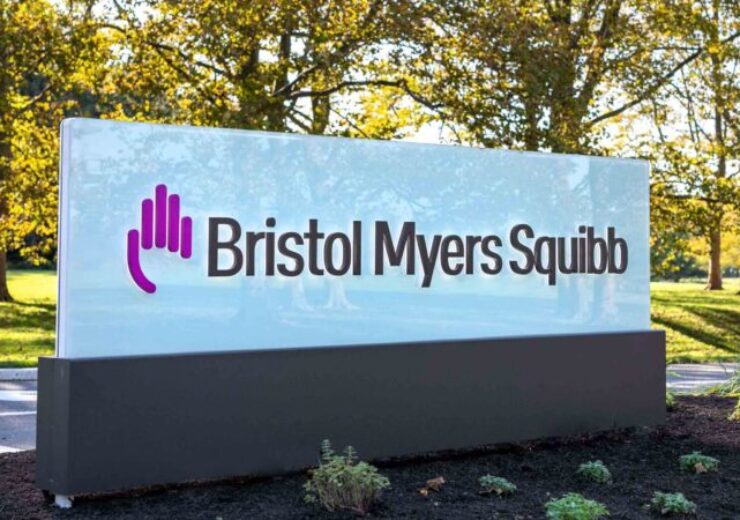BL-B01D1 is a bispecific topoisomerase inhibitor-based ADC, which is presently in a Phase 1 study in patients with metastatic or unresectable NSCLC

Bristol Myers Squibb and SystImmune partner on BL-B01D1 development. (Credit: Bristol-Myers Squibb Company)
Bristol Myers Squibb (BMS) and SystImmune have entered into an exclusive licensing and collaboration deal worth up to $8.4bn for the latter’s BL-B01D1.
BL-B01D1 is a bispecific topoisomerase inhibitor-based antibody-drug conjugate (ADC). It is intended to target epidermal growth factor receptor as well as human epidermal growth factor receptor 3 (EGFRxHER3).
It is presently in a global multi-centre Phase 1 study in patients with metastatic or unresectable non-small cell lung cancer (NSCLC).
As per the terms of the deal, Bristol Myers Squibb and SystImmune will co-develop and commercialise BL-B01D1 in the US.
SystImmune, through its affiliates, will be responsible solely for the development, commercialisation, and manufacturing of the ADC in Mainland China.
The clinical-stage biopharmaceutical firm will also produce certain drug supplies for use outside of Mainland China.
For the rest of the world, Bristol Myers Squibb will take sole responsibility for development and commercialisation of the drug candidate.
In return, Bristol Myers Squibb will pay $800m upfront to SystImmune followed by contingent near-term payments of up to $500m.
The clinical-stage firm may also receive further payments of up to $7.1bn. This will be subject to the fulfilment of specific development, regulatory, and commercial performance milestones.
Bristol Myers Squibb executive vice president and drug development chief medical officer Samit Hirawat said: “Our collaboration with SystImmune allows us to strengthen our leadership in oncology and is consistent with our strategy to diversify beyond immuno-oncology to transform patient care.
“SystImmune’s BL-B01D1 adds yet another ADC to our diverse pipeline and helps strengthen our approach of matching the most appropriate therapeutic modality to areas of unmet medical need across solid tumour oncology.”
In a separate development, Bristol Myers Squibb has reported positive results from the preplanned final progression-free survival (PFS) analysis of the Phase 3 KarMMa-3 trial of Abecma (idecabtagene vicleucel).
In the trial, Abecma was compared with standard combination regimens in adults having relapsed and refractory multiple myeloma and who previously received two to four lines of therapy.
According to the results, Abecma sustained a 51% reduction in risk of disease progression or death at a median follow-up of more than 30 months.
The median PFS was 13.8 months for the Abecma arm compared to 4.4 months in the patient arm treated with conventional regimens.
Additionally, the treatment with the cancer drug continued to demonstrate higher overall response rates and a deepening of responses in comparison to standard regimens, said Bristol Myers Squibb.
